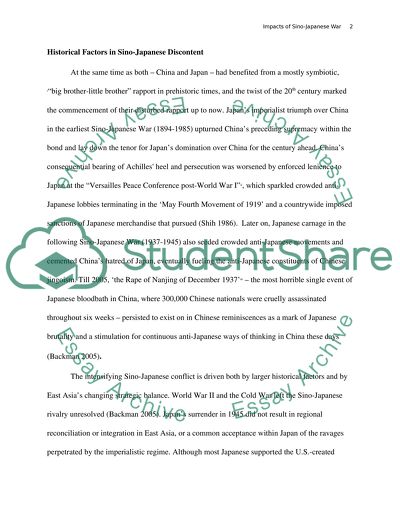Cite this document
(“Cultural Impacts of Sino-Japanese War Essay Example | Topics and Well Written Essays - 2250 words”, n.d.)
Cultural Impacts of Sino-Japanese War Essay Example | Topics and Well Written Essays - 2250 words. Retrieved from https://studentshare.org/miscellaneous/1504373-cultural-impacts-of-sino-japanese-war
Cultural Impacts of Sino-Japanese War Essay Example | Topics and Well Written Essays - 2250 words. Retrieved from https://studentshare.org/miscellaneous/1504373-cultural-impacts-of-sino-japanese-war
(Cultural Impacts of Sino-Japanese War Essay Example | Topics and Well Written Essays - 2250 Words)
Cultural Impacts of Sino-Japanese War Essay Example | Topics and Well Written Essays - 2250 Words. https://studentshare.org/miscellaneous/1504373-cultural-impacts-of-sino-japanese-war.
Cultural Impacts of Sino-Japanese War Essay Example | Topics and Well Written Essays - 2250 Words. https://studentshare.org/miscellaneous/1504373-cultural-impacts-of-sino-japanese-war.
“Cultural Impacts of Sino-Japanese War Essay Example | Topics and Well Written Essays - 2250 Words”, n.d. https://studentshare.org/miscellaneous/1504373-cultural-impacts-of-sino-japanese-war.


